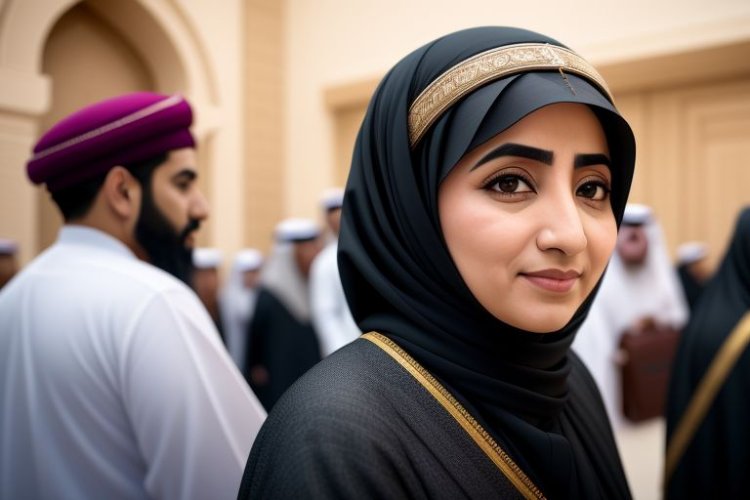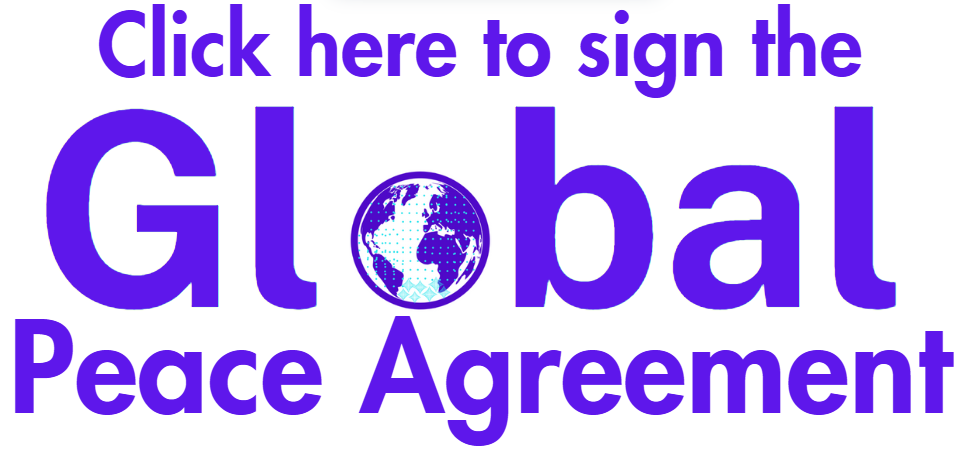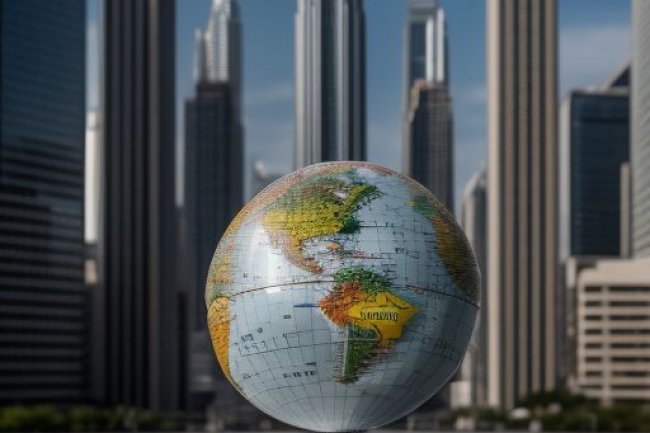Cultural Diplomacy: A Catalyst for Harmonious International Relations
The idea of cultural diplomacy is a tremendous force that affects how states interact with one another and resonates as a potential means of achieving international equality. This discourse has developed through time and now encompasses a variety of viewpoints and behaviors that go beyond conventional categories. It is smoothly woven into both cultural policy studies and international relations. The concept of "cultural diplomacy" has evolved beyond its original connotation to encompass a wide range of activities, including involvement with civil society, foreign policy, soft power, and even the advancement of societal well-being. As humanity develops, it becomes clear that cultural diplomacy can open doors for peaceful international relations and achieving global equality among nations.

The traditional notion of cultural diplomacy as a soft power tool wielded by states and international organizations to advance their foreign policy objectives has evolved into a diverse entity that defies clear boundaries. A more expansive perspective has emerged, one that recognizes cultural diplomacy not just as a means to an end but as a substantive policy area in itself. In this paradigm, cultural diplomacy is no longer confined to government diplomats engaging in formal exchanges. Instead, it extends its reach to embrace citizens, civil society actors, artists, and cultural institutions as active participants in forging cross-border connections. This evolution underscores a shift from cultural diplomacy as a tool of statecraft to a vehicle for societal empowerment, economic growth, and social cohesion.
However, even as cultural diplomacy takes on this broader role, it remains a term enveloped in ambivalence. Its blurred boundaries can encompass both genuine efforts to foster international understanding and collaborations, as well as the exploitation of culture for geopolitical or economic gain. This duality underscores the complex interplay between culture, power, and diplomacy in an interconnected world.
The prevailing "methodological nationalism" in policy and scholarship, where the focus largely rests on intergovernmental cultural exchanges, has created gaps in understanding the motivations and contributions of civil society actors and the role of cities in practicing cultural diplomacy. These gaps are crucial in unraveling the true potential of cultural diplomacy as a catalyst for harmonious international relations and equality among nations.
Acknowledging these disparities, a significant workshop was organized at the European University Institute's Robert Schuman Centre for Advanced Studies in Florence. Conducted on 21 May 2019, this workshop signaled a departure from traditional narratives, seeking to explore the previously overlooked facets of cultural diplomacy. This special issue culminates the thought-provoking discussions and insights from that gathering.
At its core, cultural diplomacy transcends the political and economic considerations that often dominate international relations. It operates on a level that resonates with shared humanity, transcending the barriers of language, geography, and ideology. When nations engage in cultural diplomacy, they engage in symbolic gestures and a profound exchange of values, narratives, and aspirations. This exchange forms the bedrock of mutual understanding—a force that bridges the chasm of misunderstanding and lays the groundwork for trust and cooperation.
Furthermore, cultural diplomacy can remarkably empower civil society actors and cities to take the lead in forging international connections. In a world where cities increasingly become hubs of innovation, culture, and diversity, they emerge as pivotal players in shaping the global landscape. By embracing cultural diplomacy, cities can foster collaborations that transcend national boundaries, extending equality to the local level and transcending the limitations of geopolitical power dynamics.
Equality among nations finds its foothold in this holistic conception of cultural diplomacy. The power dynamics that have historically underpinned international relations are challenged, as cultural diplomacy promotes mutual respect and the recognition of every nation's unique contributions to the global narrative. The journey towards equality begins with the recognition that every nation, regardless of its size, holds a valuable piece of humanity's mosaic.
Cultural diplomacy emerges as a potent force that navigates the complex intersection of culture, diplomacy, and equality. It's a bridge connecting nations not only on a governmental level but also at the grassroots level, where civil society and cities play pivotal roles. By embracing cultural diplomacy, we embark on a journey towards harmonious international relations, where mutual understanding and respect guide our interactions. As we unravel the multidimensional facets of cultural diplomacy, we discover a path that leads to the realization of equality among nations—a path where diversity is celebrated, power dynamics are redefined, and the symphony of shared humanity resonates across borders.
Global Citizenship: The Power of Shared Cultural Experiences
The shared human experience lies at the heart of global citizenship. It recognizes and celebrates that we are all present together, regardless of where we are from or reside. In the end, our success and well-being are interconnected. Instead of worrying about the future, we have more to learn from one another. This profound understanding forms the crux of global citizenship—a concept that holds immense potential to foster love, peace, and, ultimately, equality among nations across the globe.
The world is undergoing an unprecedented transformation where the boundaries of identity are evolving, becoming less tethered to specific locations. This shift has profound implications for various spheres, including business, government, and society. As multinational corporations, climate change, and social and political movements continue to shape our world, the fate of humanity is undeniably interwoven.
However, amidst debates about globalization and its consequences, the essence of global citizenship often remains overshadowed. It is imperative to recalibrate our focus and recognize the pivotal role that global citizenship plays in shaping our shared future.
At its core, global citizenship comprises two dimensions: that of individuals who embrace a set of shared values and responsibilities and that of corporations that have, in the pursuit of globalization, sometimes lost sight of their role as global citizens. This distinction underscores the need for individuals and corporations to embrace global citizenship principles actively, thus paving the way for a world characterized by love, peace, and equality.
Global citizenship fundamentally revolves around the notion of the shared human experience. It celebrates the reality that we are on this journey together, irrespective of our origins or current locations. Our destinies are intrinsically intertwined, encouraging us to learn from one another rather than succumb to fear of the unknown. This essence of global citizenship is grounded in the belief that diversity enriches our collective narrative and that our interactions have the power to transcend divisions and promote understanding.
Shared principles and obligations constitute the foundation of global citizenship. Individuals who identify as global citizens recognize the profound interplay between worldwide happenings and local circumstances. They ardently support universal human rights that transcend national borders and identities, advocating for social agreements that promote equality for all. Diversity, interdependence, empathy, and perspective are central to the essence of global citizenship, empowering individuals and entities to make positive contributions across different spheres—locally, nationally, and internationally—while safeguarding the well-being of all communities.
Global citizens come from all walks of life: individuals, corporations, global nomads, and those who blend local and global identities. They span generations, gender, economic sectors, and ideologies, all united by a shared commitment to foster international understanding, love, and peace. This collective effort is underpinned by visionary leadership, where individual leaders embody shared values and corporate entities engage in governance, ethics, and investment strategies that create lasting value in the places they touch.
It's important to note that global citizenship diverges from the concept of globalization. While globalization primarily revolves around economic and business-driven influences, global citizenship is rooted in identity and shared values. Regardless of their individual roles, global citizens serve as bridge builders, risk mitigators, and guardians of our common humanity. In an era where debates about globalization can sometimes evoke tension, the role of global citizens becomes even more pivotal in maintaining harmony and promoting love and peace.
What is the significance of global citizenship?
The significance of global citizenship transcends mere existence—it holds the key to fostering love, peace, and equality among nations. Unlike innate qualities, global citizens are nurtured through education and the cultivation of global perspectives. As the world evolves, the need for global citizenship becomes increasingly imperative in shaping an environment where every nation enjoys equal rights without marginalizing the less privileged.
Historically, the roots of global citizenship were grounded in the shared aspiration to prevent conflict and war. The logic was simple: a deeper understanding of one another would breed an environment of peace, progress, and collective prosperity. More recently, groundbreaking scientific endeavors like the Human Genome Project have illuminated our shared biological origins, underscoring that we are all one. The rapid advancement of technology further enables unprecedented connectivity, allowing us to forge connections, comprehend our commonalities, navigate interdependencies, and expand our worldviews.
However, not all individuals have had the opportunity to embrace this worldview. Across the globe, countless people lack a sense of belonging. They grapple with no profound connections to other places, cultures, and fellow humans. Even within their borders, some individuals feel estranged. Particularly in developing nations, those excluded from the digital revolution find themselves on the sidelines of these transformative conversations, unveiling an uneven distribution of connectedness.
In the corporate landscape, a disheartening pattern has emerged in recent decades, with some companies prioritizing corporate interests over those of individuals, communities, and the environment. Reports of unethical conduct, corruption, exploitative labor practices, environmental degradation, and other transgressions mar the corporate world, starkly contradicting the world's needs.
Enter global citizenship—a concept that serves as a bridge to mend these divides and rectify these stark realities. Global citizens embody the essence of global citizenship and stand as the ambassadors of this transformation. Beyond a mere mindset, global citizenship propels individuals toward meaningful actions and lifestyles that nurture connections over time.
The power of global citizenship is most evident in its potential to pave the way for love, peace, and equality among nations. By embracing the principles of global citizenship, nations transcend their differences and forge bonds that unite rather than divide. Through education that encourages global perspectives, individuals learn the art of empathetic understanding, creating a ripple effect of mutual respect and cooperation that transcends borders.
Furthermore, global citizenship inherently seeks to rectify the existing disparities between nations. It addresses the imbalance that arises from the exclusion of less privileged nations from the digital revolution, striving to create an inclusive platform where every voice is heard and every perspective matters. It aims to dissolve the sense of detachment that many individuals experience at home and in relation to the broader global community.
In the corporate arena, global citizenship serves as a moral compass that redirects companies toward ethical conduct, community engagement, and environmental stewardship. By embracing a global citizenship ethos, corporations prioritize the well-being of individuals and communities over short-term profit, forging partnerships that uplift societies and protect the planet.
The concept of global citizenship stands as a testament to the power of shared cultural experiences. It is a unifying force that transcends borders and unites humanity by acknowledging our interconnectedness. By embracing global citizenship and nurturing shared values, we embark on a journey toward a world where love, peace, and equality flourish among nations. In this journey, the threads of cultural understanding intertwine to weave a tapestry of unity that bridges divides and fosters a global community rooted in mutual respect and collaboration.
Promoting Cultural Exchange for Enhanced Global Solidarity
The perception of a harmonious world, where individuals and societies truly coexist, is a promising and challenging vision. This vision is underscored by the harsh realities of exclusion endured by millions of marginalized individuals—women, youth, migrants, and disenfranchised minorities—whose voices are often unheard amidst the cacophony of progress. Despite the surge in information, technology, and knowledge, the essence of wisdom remains indispensable in preventing conflicts, eradicating poverty, and cultivating an environment where every individual learns and lives in harmony, contributing to a safe world for all.
Amid this turbulent landscape of international globalization, a resounding message must be heralded: peace transcends the absence of warfare; it signifies a coexistence that thrives on embracing our diversity of sex, race, language, religion, and culture. A cornerstone of this coexistence is universal respect for justice and human rights, pivotal aspects underpinning the fabric of peaceful societies. It's a reminder that peace should never be taken for granted—it's a dynamic process. This enduring goal necessitates ceaseless effort, vigilance, and active participation from all corners of society. Peace isn't just a theoretical ideal; it's a conscious choice that manifests in our daily interactions, a commitment to engage in sincere dialogues with individuals and communities, whether they dwell a block away or are connected through a mere click.
In this context, the role of promoting cultural exchange emerges as a catalyst for enhanced global solidarity, a beacon guiding humanity toward love, peace, and equality among nations. Cultural exchange is more than just an exchange of artifacts or artistic expressions; it's an exchange of perspectives, stories, and ideas. It's a powerful means to transcend biases, dispel misunderstandings, and foster mutual respect, laying the foundation for a more harmonious world.
The UNESCO Universal Declaration on Cultural Diversity champions these ideals, emphasizing the importance of harmonious interaction among diverse cultural identities. It acknowledges that social cohesion, civil society vitality, and peace are nurtured by policies promoting the inclusion and participation of all citizens. Such cultural pluralism, deeply intertwined with democratic principles, nurtures cultural exchange, nurtures the flourishing of creative capacities, and fosters a public sphere where diverse voices coalesce in a symphony of unity.
For a vision of world peace to materialize, investments in education, enlightened leadership, powerful values, innovative social research, and progressive media are imperative. These elements together form the bedrock of global solidarity and are precisely the arenas in which UNESCO's mission thrives. UNESCO's enduring commitment to education and sciences, its preservation of cultural heritage and encouragement of creativity, and its pursuit of a media landscape oriented toward peace collectively contribute to the very essence of world peace—active, flourishing, and sustainable.
Through promoting cultural exchange, the path toward a peaceful world gains clarity. Cultural exchange enriches perspectives, fosters empathy, and sparks conversations beyond borders. It's a mechanism that dismantles the barriers of ignorance and prejudice, nurturing an environment where understanding thrives, and differences are celebrated. Cultural exchange empowers individuals to step beyond their comfort zones, embrace the unfamiliar with an open heart and build bridges of connection that foster international unity.
By creating platforms that facilitate cultural exchange, we create spaces for shared experiences, fostering bonds between diverse communities. These bonds, forged through dialogue and mutual understanding, establish a collective commitment to peace and equality. Cultural exchange nurtures an environment where individuals and societies engage in active learning, eradicating stereotypes, cultivating empathy, and embracing the shared values that unite humanity.
In this interconnected world, where distance is no longer defined solely by geographical boundaries, the idea of cultural exchange reverberates as a unifying force. It's a catalyst that instills a sense of common humanity, a reminder that no matter our origins, we share this planet. By actively engaging in cultural exchange, we transcend the barriers that hinder peace, equality, and coexistence among nations. We open doors to profound connections, bridge gaps in understanding, and lay the groundwork for a world where every individual's rights are upheld and the equality of nations is woven into the fabric of our global society.




















